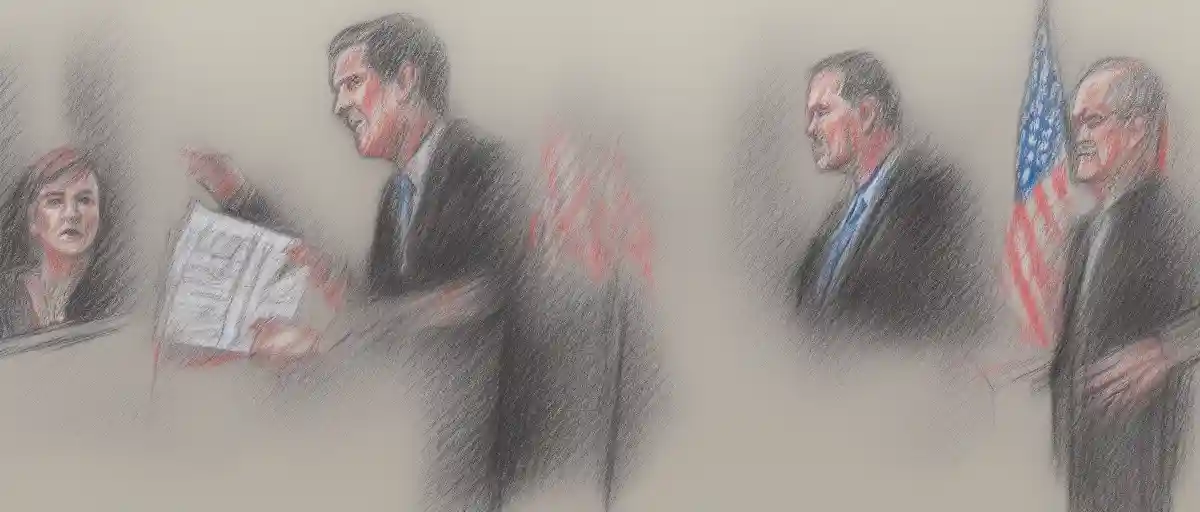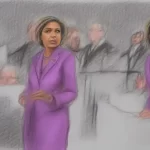You Might Find This Intriguing As Well:
Breaking: Florida Judge Blocks Controversial Voter Registration Law, Citing Constitutional Violation!
It’s a matter of controversy and political debate – a recent ruling by a Florida judge has thrust the issue of voter registration restrictions into the spotlight. While some argue that the blocked law aimed to protect the integrity of the electoral process, others contend that it unfairly burdened organizations and infringed on the fundamental rights of individuals engaged in voter registration efforts. Let’s delve into both sides of the argument.
As a starting point, proponents of the law argue that the need for strict deadlines is essential to ensuring the accuracy and efficiency of voter registration. They believe that by requiring organizations to submit registration forms within 48 hours, potential errors or fraudulent registrations could be swiftly identified and addressed. Supporters contend that such measures are crucial to maintaining trust in the electoral system and preventing any potential election interference.
Alternatively, opponents of the law, like the judge who blocked it, argue that these strict deadlines create unnecessary burdens on organizations and individuals striving to facilitate voter registration. They maintain that the 48-hour window was excessive, offering little flexibility in case of unforeseen challenges or logistical issues. Critics claim that such rigid requirements can discourage organizations from engaging in voter registration activities, ultimately disenfranchising certain groups or individuals who rely on their assistance.
Ensuring the integrity of voter registration is undoubtedly a critical aspect of our democratic process. However, striking a balance between the security of elections and the facilitation of voter engagement is equally crucial. The blocked Florida law, with its strict timeframe, failed to strike that balance.
While it’s essential to prevent potential fraudulent registrations, imposing overly burdensome requirements on voter registration organizations can impede their ability to effectively carry out their work. It’s essential to acknowledge the invaluable role played by these organizations in empowering individuals to participate in the democratic process.
Furthermore, the freedom of speech and association, protected by the First Amendment, must be upheld even within the context of voter registration. By imposing a tight timeframe, the law could stifle meaningful engagement and limit the opportunity for individuals to exercise their democratic rights fully.
It’s important to evaluate the potential impact of legislation beyond its intended purpose. While this blocked Florida law aimed to protect the electoral process, it inadvertently risked suppressing voter registration efforts and infringing upon individuals’ constitutional rights. Striking the right balance between safeguarding democracy and facilitating voter engagement remains key to fostering a robust and inclusive democratic system.
Here's A Video We Thought You Might Also Like:
Author Profile

- I'm a sports enthusiast and a die-hard fan, and I also enjoy examining the political aspects of sports. My articles explore how sports can intersect with politics and act as a platform for social change.
Latest entries
 Breaking News2023.12.12Congresswoman Slams Harvard’s President for Alleged Bias Is Intellectual Diversity at Risk
Breaking News2023.12.12Congresswoman Slams Harvard’s President for Alleged Bias Is Intellectual Diversity at Risk Breaking News2023.12.11Supreme Court to Decide if Former President Trump is Immune from Defamation Lawsuit
Breaking News2023.12.11Supreme Court to Decide if Former President Trump is Immune from Defamation Lawsuit Breaking News2023.12.11Dismaying Truth about California’s High-Speed Rail Delays and Cost Overruns Expose a Troubled Project!
Breaking News2023.12.11Dismaying Truth about California’s High-Speed Rail Delays and Cost Overruns Expose a Troubled Project! Breaking News2023.12.09Captivating New Study Reveals the Truth About Immigration and Crime Rates!
Breaking News2023.12.09Captivating New Study Reveals the Truth About Immigration and Crime Rates!






